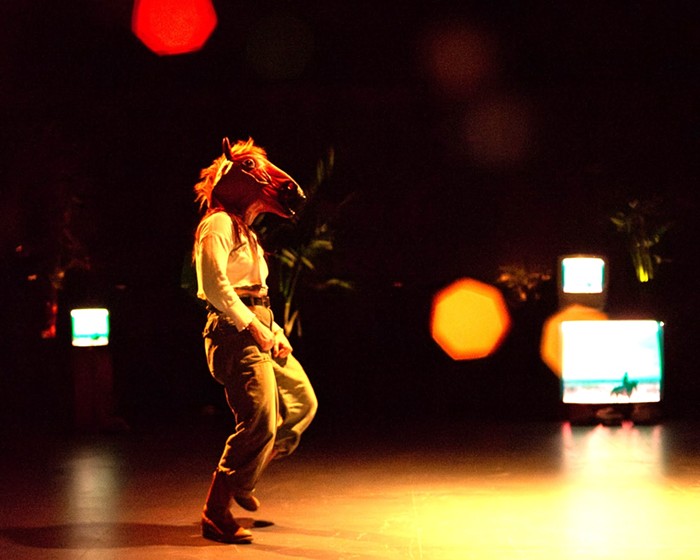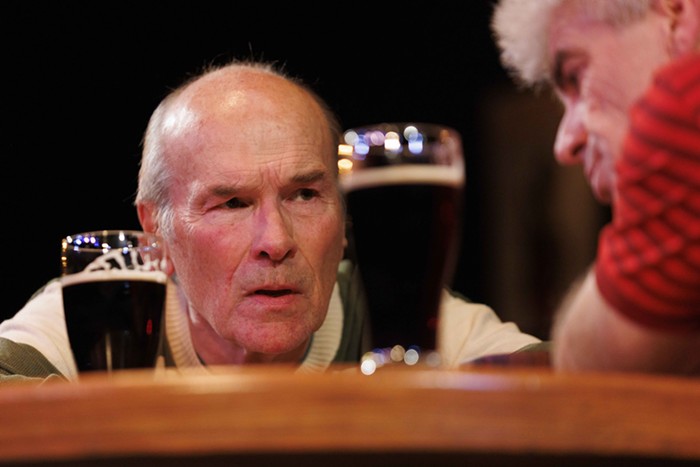Despite snagging a couple of Academy Award nominations for last year's film adaptation, playwright Peter Morgan's Frost/Nixon was never really suited for the big screen—if only because a crucial theme in the play is the unprecedented intimacy that television offered. To modern viewers, there's nothing revelatory about the close-up—but in Portland Center Stage's (PCS) production of Frost/Nixon, Richard Nixon (Bill Christ) dutifully blots his face every few minutes while on camera, acutely aware that sweat and a five o'clock shadow played a role in his loss to the far more photogenic John F. Kennedy.
The significance of this perspective shift is explained in the film, but not really felt—not felt like the audience at PCS feels it when, after 90 minutes of watching a human-sized Nixon stride around the stage, his face is suddenly projected with unsettling clarity on a ceiling-high screen. Oh, thinks the audience in the balcony. That's what he really looks like. It's a powerful moment (and one that will no doubt be even more impactful once PCS' tech crew has figured out how to fully synchronize characters' voices to their projected mouths).
By the time of the events dramatized in Frost/Nixon, Nixon has gained and lost the presidency; he's in grudging retirement when he's talked into doing a series of interviews with David Frost, a British television host whose primary motivation for pursuing the Nixon interviews is to break into the American television market. He soon realizes, though, that for the interviews to succeed, he needs to obtain from Nixon the one thing no other journalist has: an apology for Watergate.
Nixon's casting is all-important here, and Bill Christ is unassailable as the disgraced president. Christ is so compelling it feels at times as though the stage is tilting toward him—and unfortunately, David Townsend as journalist David Frost doesn't have what it takes to balance the stage. His characterization of Frost is uneasy, too insecure, lacking the bravado and smarm that might make Frost believable as a television personality.
Tony Cisek's set, made up of latticed panels that slide into various configurations as scenes change, has a restless, fidgety quality that, combined with Townsend's diffidence, can make some scenes feel unfocused. None of this matters, though, when Nixon gets ready for his close-up—Christ's performance, under Rose Riordan's smart direction, offers some of the best moments we've seen on PCS' mainstage this year.



















